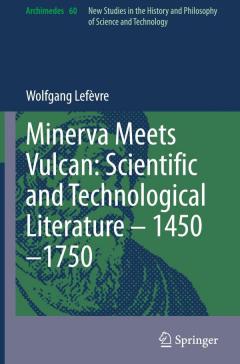This book offers a comprehensive study and account of the co-evolution of technological and scientific literature in the early modern period (1450-1750). It examines the various relationships of these literatures in six areas of knowledge - Architecture, Chemistry, Gunnery, Mechanical Engineering, Mining, and Practical Mathematics - which represent the main types of advanced technological and scientific knowledge of the era. These six fields of technologically advanced knowledge and their interrelations and interactions with learned knowledge are investigated and discussed through a specific lens: by focusing on the technological literature.
Among present-day historians of science, it hardly remains controversial that contact and exchange between educated and practical knowledge played a significant role in the development of the natural sciences and technology in early modern Europe. Several paths for such exchange arose from the late Middle Ages onward due to the formation of an economy of knowledge that fostered contacts and exchange between the two worlds. How can this development be adequately described and how, on the basis of such a description, can the significance of this process for the early modern history of knowledge in the West be assessed? These are the overarching questions this book tries to answer.
There exists a considerable amount of literature concerning several stations and events in the course of this long development process as well as its various aspects. As meritorious and indispensable as many of these studies are, none of them tried to portray this process as a whole with its most essential branches. What is more, many of them implicitly or explicitly took physics as a model of science, and thus highlighted mechanics and mechanical engineering as the model of all interrelations of practical and learned knowledge. By contrast, this book aims at a more complete portrait of the early modern interrelations and interactions between learned and practical knowledge. It tries to convey a new idea of the variety and disunity of these relations by discussing and comparing altogether six widely different fields of knowledge and practice.
The targeted audience of this book is first of all the historians of science and technology. As one of the peer reviewers suggested - the book could very well become a textbook used for teaching the history of science and technology at universities. Furthermore, since the book addresses fundamental aspects of the significance emergence and development of modern science has for the self-image of the West, it can be expected that it will attract the attention and interest of a wider readership than professional historians.

